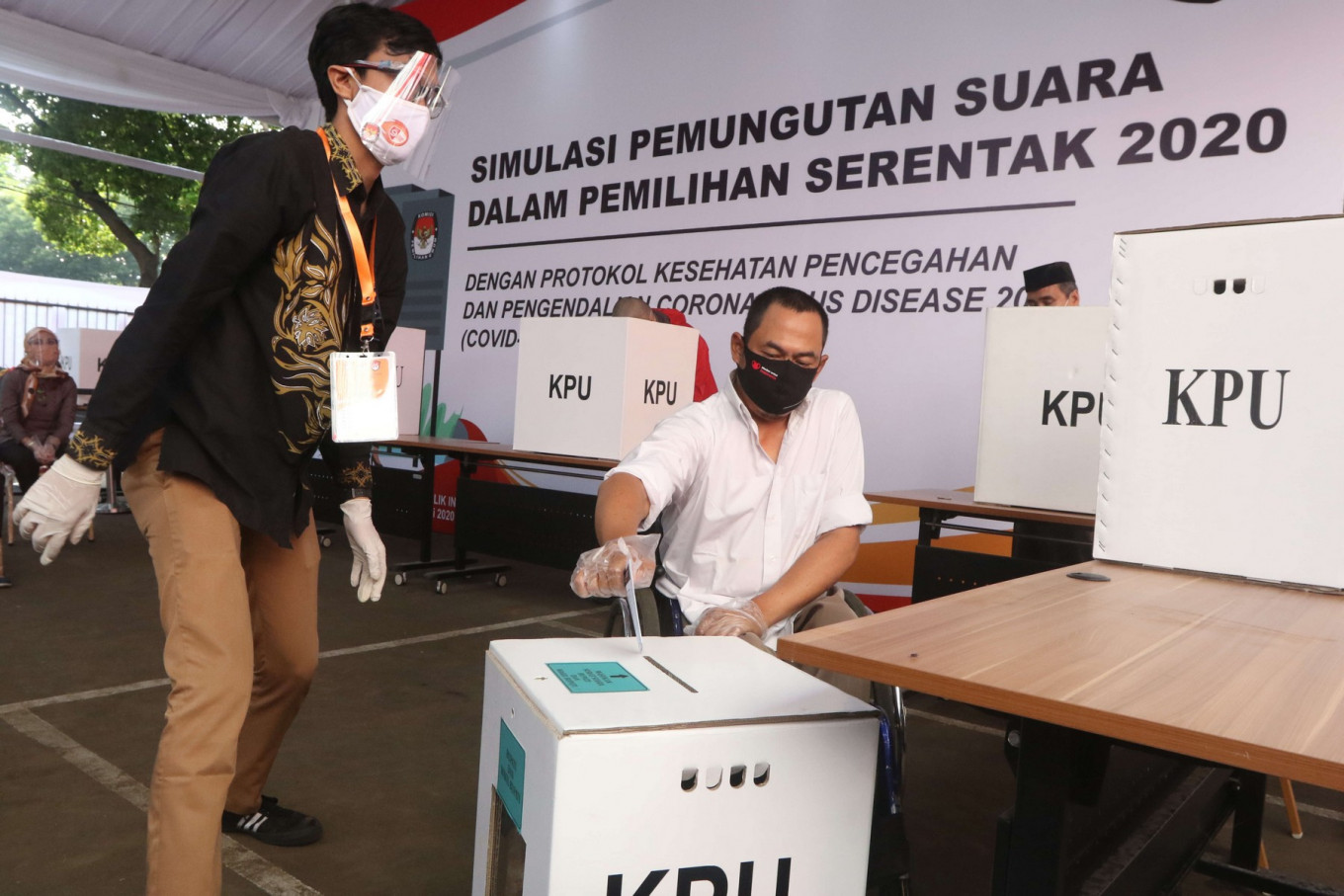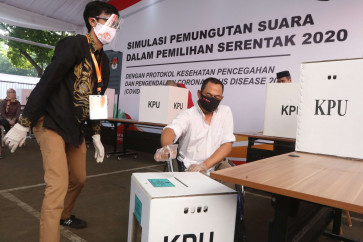Popular Reads
Top Results
Can't find what you're looking for?
View all search resultsPopular Reads
Top Results
Can't find what you're looking for?
View all search results75 years on, Indonesia’s electoral system still needs improvement
Analysts say democratic elections have yet to produce elected officials that were intimately aware of and responded to voters’ aspirations.
Change text size
Gift Premium Articles
to Anyone
 An election official helps a voter with a disability take part in a simulation of the 2020 simultaneous regional elections in the front yard of the General Elections Commission (KPU) headquarters on July 22. The KPU implemented COVID-19 protocols while holding the voting simulation.
(JP/Dhoni Setiawan)
An election official helps a voter with a disability take part in a simulation of the 2020 simultaneous regional elections in the front yard of the General Elections Commission (KPU) headquarters on July 22. The KPU implemented COVID-19 protocols while holding the voting simulation.
(JP/Dhoni Setiawan)
"Documenting 75 years of resilience" is a series of special reports by The Jakarta Post to celebrate Indonesia’s Independence Day on Aug. 17, 1945.
Indonesia has hosted democratic elections and peacefully transferred powers after the fall of the authoritarian New Order regime, but experts say improvements are needed for the country to establish itself as a substantive, rather than procedural, democracy.
The country has directly elected House of Representatives members since 1999, president and vice president since 2004, and mayors, regents and governors since 2005 -- all in an electoral process hailed as free and fair.
The Freedom House’s annual Freedom in the World index shows Indonesia's score in political rights has been stable in the past 15 years since Indonesia organized the first direct regional elections in 2005, with Indonesia scoring 30 out of 40 maximum points last year. The assessment of political rights measured the electoral process, political pluralism and participation, and functioning of the government.
Indonesia's score in political rights has been the second-highest in Southeast Asia since 2017, behind only Timor Leste with a score of 32.
The latest index acknowledged elections in Indonesia had been held on a largely democratic foundation but highlighted that women and minority groups remained underrepresented in the country.
Indonesia’s score in political pluralism and participation in the Economist Intelligence Unit’s (EIU) latest Democracy Index rose from 6.92 in both 2017 and 2018 to 7.92 in 2019 after holding simultaneous presidential and legislative elections in the same year. It was also the highest score the country has achieved since the EIU first released the annual index in 2006, although Indonesia was still behind Southeast Asian neighbors Timor Leste, Malaysia and the Philippines.

















